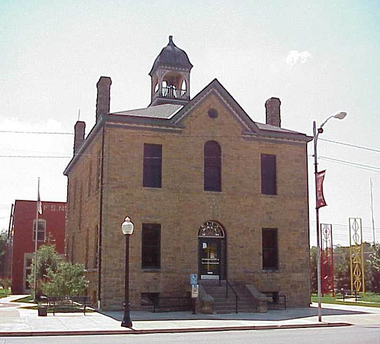All change is local

By Troy Stevenson
Freedom Oklahoma Columnist
Every four years the masses begin to buzz about national politics as the presidential election takes center stage in the arena of public discourse. There is no escaping it, everywhere you turn you see and hear Clinton, Sanders, Trump, Cruz, and the rest. We divide into polarized camps and put on the trappings of our candidate as though they were our alma mater during March Madness. Families are divided, friendships ruined, and marriages in chaos – all for the love of our chosen candidate.
Is that really how we create change? Has progress ever started at the top and trickled down to the masses? The next time someone asks about your pick for President, reply by asking them who their state Representative is. If they don't know, educate them. Talk to them about city council and school board. Explain how important their state Senator is to their life. Ask them how often they vote, or visit the State Capitol or City Hall.
It is a sad state of affairs when the majority of the population can quote the most insignificant policy position of a candidate – positions that will seldom become legislative reality – yet they don’t know what happened at their last city council meeting. Their great hope is that the nation’s chief executive will save their child’s failing school – yet they don’t bother to attend the school board meeting to speak to their school board representative for help, when they can take action in real time.
The next time someone gives you the opportunity, preach about how all politics are local. Don't fall into the trap of believing, or add to the idea that, we elect our government every four years, because that is how we fail. In order to make our country better we must start in our local community. In order to create a more fair and prosperous future for the next generation we must advocate where we can be the most productive. Presidents have over 300 million constituents. However, your local representatives only have a few thousand. And they hear from almost none of them.
Civic engagement is not a privilege; it is a right and a responsibility. And while the idea of taking part in a presidential election is exciting and sexy, it is not practical or effective for the majority of us to make a difference at that level. We can however drive the conversation in our neighborhoods, cities, and states. We can make our voices heard and ensure that our leaders know where we stand on the issues that affect us the most.
So as for me: I will cast my vote for president, but my priority will be trying to make a difference right here in the community that I call home. Won't you join me?
The Gayly – April 24, 2016 @ 11:30 a.m.





